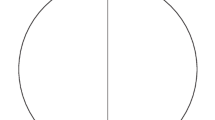
Overview
- Demonstrates that quantum theory based on finite mathematics is more general than standard theory
- Shows also that finite mathematics is itself more general than standard mathematics
- Presents that the concepts of particles and antiparticles emerge as an approximate notion valid in special situations, while electric charge and baryon- and lepton quantum numbers can be only approximately conserved
Access this book
Tax calculation will be finalised at checkout
Other ways to access
About this book
Similar content being viewed by others
Keywords
- Finite Quantum theory
- Foundation of Quantum Theory
- Quantum de Sitter Symmetry
- Foundation of Mathematics
- Gravity in Finite Quantum Theory
- Cosmological Accelleration and de Sitter Symmetry
- Particle and Antiparticle Quantum Numbers
- Quantal Paradox for Photons from Stars
- Dirac Singletons
- Nature of Time Conjecture
Table of contents (11 chapters)
-
Front Matter
-
Back Matter
Authors and Affiliations
About the author
Accessibility Information
Bibliographic Information
Book Title: Finite Mathematics as the Foundation of Classical Mathematics and Quantum Theory
Book Subtitle: With Applications to Gravity and Particle Theory
Authors: Felix Lev
DOI: https://doi.org/10.1007/978-3-030-61101-9
Publisher: Springer Cham
eBook Packages: Physics and Astronomy, Physics and Astronomy (R0)
Copyright Information: The Editor(s) (if applicable) and The Author(s), under exclusive license to Springer Nature Switzerland AG 2020
Hardcover ISBN: 978-3-030-61100-2Published: 03 November 2020
Softcover ISBN: 978-3-030-61103-3Published: 03 November 2021
eBook ISBN: 978-3-030-61101-9Published: 03 November 2020
Edition Number: 1
Number of Pages: XVII, 291
Number of Illustrations: 3 b/w illustrations, 1 illustrations in colour
Topics: Quantum Physics, Mathematical Logic and Foundations, History and Philosophical Foundations of Physics, Classical and Quantum Gravitation, Relativity Theory, Particle and Nuclear Physics



